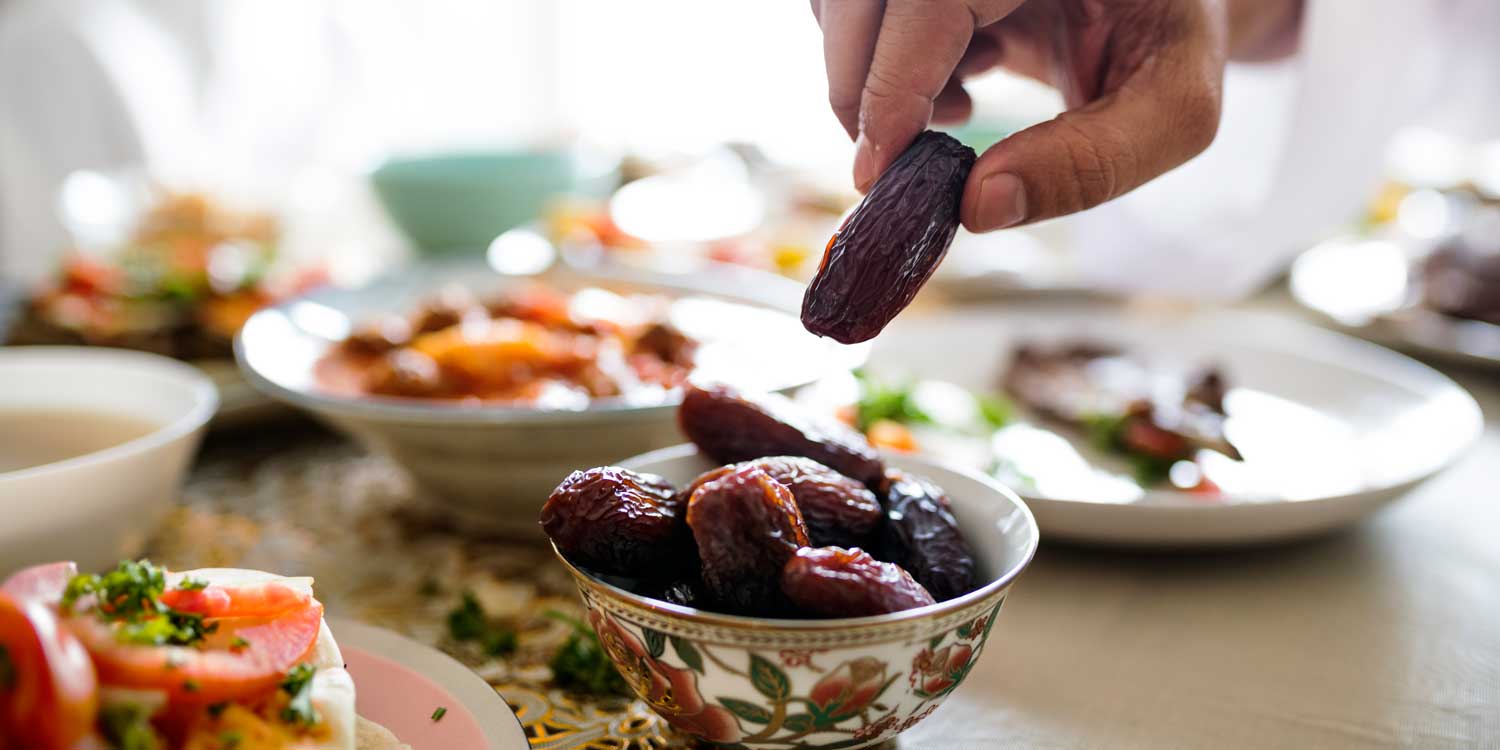
09 May What is the healthiest way to fast during Ramadan?
The holy month of Ramadan is upon us. As much as it is a celebratory occasion, most of us dread the effects of fasting during the day on our body, mind and mood. This is especially true and even more pronounced this year as Ramadan is during the summer. So how can we take advantage of Ramadan to lead the way to the popular and trendy diet of intermittent fasting? Dr Rami, one of our Health at Hand doctors tells us more and has recorded his top tips in a short video. Scroll down and let us know your thoughts!
One of the major benefits of fasting during Ramadan is to understand and experience how the less fortunate and needy live with limited or no access to food and water. Muslims do not eat or drink anything from sunrise to sunset everyday during the Holy month, not even water!
I am sure that most of us, at some point, have heard or read about Intermittent Fasting. For those who haven’t, just like fasting, intermittent fasting is the restriction of calorie intake for extended periods of time with the goal of losing weight and maintaining a healthy BMI. One difference between Intermittent Fasting and Ramadan Fasting is that during Intermittent Fasting you can consume fluids and small snacks during the fasting period.
Intermittent Fasting is not a fad diet, it has shown very promising results in many health areas such as losing weight and even preventing heart attacks.
BUT there is a catch.
Like we mentioned earlier, it has to be done right. Intermittent Fasting and Ramadan Fasting are not for every one, that’s why even for Muslims if your body cannot tolerate it for any health related reason you are allowed and actually encouraged to not fast.
Listen to your body and to your doctor. If you have any chronic medical conditions such as hypertension or diabetes, consult your family physician before you plan to observe fasting.
Key things to follow if you are Intermittent Fasting or fasting during Ramadan
If you do not have any medical conditions here are some tips that you need to know for Intermittent Fasting or Ramadan Fasting:
It all starts on the evening before
Your last supper:
Since, you will be fasting for a long period of time the next day, make sure your last meal of the day is well balanced.
During Ramadan, the last meal of the day is called Suhoor. It is customary for Muslims to delay it as possible, some Muslims even wake up just before sunrise to eat in preparation for the fasting day ahead. There is no recommended time for the last meal of the day however it is not recommended to have heavy meals or meals that are high in salt content. Meals that are high in salt content will make you thirsty afterwards and make the fasting even more difficult.
It is recommended to have a well balanced meal with lots of vegetables and juicy fruits. Dates are especially very popular in Ramadan because of their high calorie content and relatively low sugar and salt content thus making them ideal as backup fuels for the fasting day.
Sleep:
Make sure you have enough sleep the night before you wake up. We do not recommend interrupting your sleep to wake up and eat in preparation for fasting. A full 8 hours of sleep is necessary for the body to go through changes and demonstrate the benefits achieved from fasting, Intermittent Fasting or Ramadan Fasting. Whether it is losing weight or building muscle, sleep is of utmost importance.
During the day:
The first thing that most of us think about when we wake up during fasting is drinking water. There are many ways to prevent thirst during the day without having to drink water. Start your day with a cool shower, wear light and bright clothes to reflect heat and make sure you are well shaded and cool at all times. This is not an issue here in Dubai, but be extra conscious about it when you are fasting.
If you are observing Intermittent Fasting make sure you stay hydrated by drinking a lot of water and having small juicy snacks such a fruit salads or vegetables. You can also consume caffeine but without sugar, as adding sugar negates the whole intended effect of Intermittent Fasting.
When breaking your fast
It is customary for Muslims to break their fasts with either a date or a sip of water and then proceed to regular starters such as soup or salads. It has been proven to be optimum to break your fast with subtle sugary juices as it preps your body for the relatively higher calorie intake to come. As with a regular diet, it is not recommended to have foods that are deep fried or high in salt content. Moderation is key, and even though after a long day of fasting you think you could eat a whole a cow that is usually not the case so don’t rush to open buffets to fill up your plates and end up eating more than needed or even worse, throwing that extra food away.
Ramadan is a great opportunity for all of us to reap a lot of benefits spiritually and physically. Take that chance to do more good for yourself and for your community as well.



